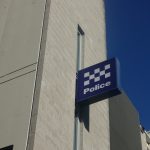NSW Police Association Demands Thousands More Officers

Earlier this year, the Police Association of NSW demanded 2,500 extra officers which it claimed was necessary to avoid an “epidemic” of violence.
The Association says its members are at a “breaking point”, warning that a failure to dramatically increase police numbers will result in a police failure to investigate crime.
“We are at that cliff edge where we need to actually invest in policing,” Police Association president Scott Weber remarked.
The claims of an epidemic of violence are at odds with crime statistics, which suggest that rates of violent crime in our state are at their lowest in forty years.
Nevertheless, the Association foreshadowed the possibility of strike action if its demands were ignored, prompting NSW Premier Gladys Berejiklian to announce an extra $220 million of funding as well as an extra 100 positions.
The events have triggered debate about whether it is acceptable or even permissible for police in NSW to take strike action, and prompted us to take a look at historical strike action.
NSW Police Strikes
In 2011, a number of NSW police officers took part in a strike by public sector workers against laws introduced by the O’Farrell to limit public sector pay rises to 2.5% per year.
Police also stopped issuing some fines in 2011 to protest cuts to death and disability benefits, which caused the state to lose $11 million in fine revenue, including $8 million in speeding tickets.
The Association also threatened industrial action against the State Government in 2017, having accused Premier Berejiklian of reneging on a new day peal and cutting off $2 million a year worth of promised entitlements.
Police in Dubbo also took part in industrial action that year, issuing fewer traffic fines and refusing to undertake overtime. And officers in Maitland and Newcastle voted to issue warnings instead of traffic infringements, while refusing to undertake administrative task.
“Police officers are willing to take this industrial action again if it’s necessary,” Mr Weber recently remarked.
Illegal in the United Kingdom
In the UK, the Police Act 1996 makes it illegal for police to undertake widespread industrial action due to the instability it can cause.
There, leaders of industrial action and even individual officers can be prosecuted for taking such action.
Crime did, in fact, skyrocket during police strikes in Melbourne in 1923, Liverpool in 1919, Montreal in 1969 and Helsinki in 1976.
Australia – the Fair Work Act
Unlike in the UK, strikes are not regulated by industry-specific legislation in Australia.
Rather, such action is covered by the Fair Work Act 2009 (Cth) (‘the Act’).
Section 424 of the Act requires the Fair Work Commission to suspend or terminate industrial action where it is satisfied the action has threatened, is threatening, or would threaten:
to endanger the life, the personal safety or health, or the welfare, of the population or of part of it; or
- to cause significant damage to the Australian economy or an important part of it.
The section was relied upon to terminate last year’s Sydney Rail strike and the 2011 Qantas strike.
It would almost certainly apply to widespread industrial action by police that threatens the safety or welfare of the community.
However, is debatable whether the refusal of police to issue some fines (as they have done in the past) would fall under the section, as it may or may not ‘cause significant damage to the Australian economy or an important part of it’.
This would need to be determined on a case-by-case basis.
International Labour Law Standards
In addition to the Fair Work Act, the Committee on Freedom of Association (CFA) has recognised that the right to strike can be blocked for certain “essential services” – which are services whose interruption would endanger the life, personal safety or health of the whole or part of the population.
So despite the Police Association’s warnings, it would need to be careful not to undertake strike actions which would amount to unlawful conduct under the law.







